Presented by Carahsoft
.png?width=365&height=150&name=IIG_HIMSS_Website%20(300%20x%20150%20px).png) Innovation in Government at HIMSS 2024 is a program that shines a spotlight on the transformative intersection of healthcare, technology, and government. As we navigate through this era of unprecedented digital evolution, our program delves into the critical themes shaping the future of healthcare: cybersecurity, artificial intelligence (AI), and the drive towards seamless interoperability across healthcare systems. Featuring insights from industry leaders and government officials, we explore how advancements in technology are not just redefining patient care and data management but are also addressing the pressing challenges of cybersecurity and clinician burnout. Join us as we uncover the pivotal innovations and collaborative efforts aimed at enhancing healthcare delivery and making our health systems more resilient, efficient, and patient-centered.
Innovation in Government at HIMSS 2024 is a program that shines a spotlight on the transformative intersection of healthcare, technology, and government. As we navigate through this era of unprecedented digital evolution, our program delves into the critical themes shaping the future of healthcare: cybersecurity, artificial intelligence (AI), and the drive towards seamless interoperability across healthcare systems. Featuring insights from industry leaders and government officials, we explore how advancements in technology are not just redefining patient care and data management but are also addressing the pressing challenges of cybersecurity and clinician burnout. Join us as we uncover the pivotal innovations and collaborative efforts aimed at enhancing healthcare delivery and making our health systems more resilient, efficient, and patient-centered.
Featuring:
- Tim Boltz, Healthcare Strategist at Carahsoft
- Mark Knee, Director of the Interoperability Division at the Office of the National Coordinator for Health IT
- Naomi Escoffery, Deputy to the Deputy Assistant Director of Acquisition and Sustainment at the Defense Health Agency
- Aaron Shaha, CISO of CyberMaxx
- Cherilyn Pascoe, Director of the National Cybersecurity Center of Excellence at NIST
- Patrick Conte, VP & GM Americas at Fortanix
- Dr. Helga Rippen, Chief Interoperability and Veteran Access Officer at the U.S. Department of Veterans Affairs
- Mark Mitchell, Federal Security Architect at Netskope
- Liz Turi, Care Coordination & Collaboration Branch Chief at ONC
- Peter Hancock, VP of Global Sales at Asimily
Cybersecurity and AI: Carving the Future of Healthcare Innovation
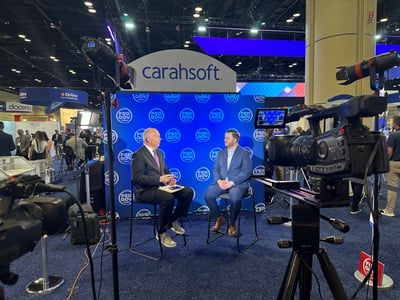 Tim Boltz, a healthcare strategist at Carahsoft, discusses the paramount importance of cybersecurity and artificial intelligence (AI) in transforming healthcare. In the wake of recent cyber attacks, cybersecurity has surged to the forefront of healthcare leaders' concerns, emphasizing the need for robust defenses to protect sensitive patient data and healthcare infrastructures. Parallelly, AI and machine learning (ML) are recognized for their potential to revolutionize patient care and operational efficiency. Bolts underscores the critical role of AI in enhancing care delivery, reducing clinician burnout, and enabling healthcare providers to focus on patient interaction. The integration of AI into healthcare not only promises to streamline data management but also opens new avenues for personalized treatment and tackling rare diseases.
Tim Boltz, a healthcare strategist at Carahsoft, discusses the paramount importance of cybersecurity and artificial intelligence (AI) in transforming healthcare. In the wake of recent cyber attacks, cybersecurity has surged to the forefront of healthcare leaders' concerns, emphasizing the need for robust defenses to protect sensitive patient data and healthcare infrastructures. Parallelly, AI and machine learning (ML) are recognized for their potential to revolutionize patient care and operational efficiency. Bolts underscores the critical role of AI in enhancing care delivery, reducing clinician burnout, and enabling healthcare providers to focus on patient interaction. The integration of AI into healthcare not only promises to streamline data management but also opens new avenues for personalized treatment and tackling rare diseases.Key Takeaways:
- Cybersecurity Emerges as a Top Concern: Recent cyber attacks have pushed cybersecurity to the top of the healthcare sector's agenda, highlighting the necessity of safeguarding healthcare data and systems against digital threats.
- AI and ML Drive Efficiency and Care Quality: Artificial intelligence and machine learning are lauded for their ability to optimize healthcare operations and improve patient care, from automating administrative tasks to enabling advanced diagnostic and treatment options.
- Focus on Addressing Clinician Burnout: Leveraging AI to alleviate the workload on healthcare professionals is identified as a key strategy in combating clinician burnout, thus improving job satisfaction and patient care quality.
Creating a Unified Healthcare Information Network: The ONC's Vision for Nationwide Interoperability
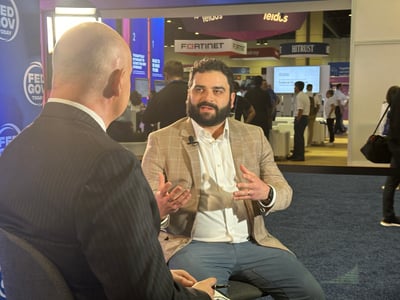 Mark Knee, Division Director of the Interoperability Division at the Office of the National Coordinator for Health IT, highlights the transformative journey towards a seamless health information exchange across the United States. Through the Trusted Exchange Framework and Common Agreement (TEFCA), ONC aims to bridge disparate health networks, akin to the seamless connectivity of cell phone networks. This initiative, driven by the need for nationwide scalability and seamless patient care, marks a pivotal step towards democratizing health information access and improving healthcare outcomes.
Mark Knee, Division Director of the Interoperability Division at the Office of the National Coordinator for Health IT, highlights the transformative journey towards a seamless health information exchange across the United States. Through the Trusted Exchange Framework and Common Agreement (TEFCA), ONC aims to bridge disparate health networks, akin to the seamless connectivity of cell phone networks. This initiative, driven by the need for nationwide scalability and seamless patient care, marks a pivotal step towards democratizing health information access and improving healthcare outcomes.
Key Takeaways:
- TEFCA is likened to the connectivity of cell phone networks, aiming for seamless health information exchange.
- Seven qualified health information networks (QHINs) are onboard, demonstrating the initiative's growing traction.
- The evolution towards a more interconnected health information landscape emphasizes the need for universal access to patient data, enhancing care quality and efficiency.
Digital Transformation in Military Health: Addressing Challenges and Enhancing Care
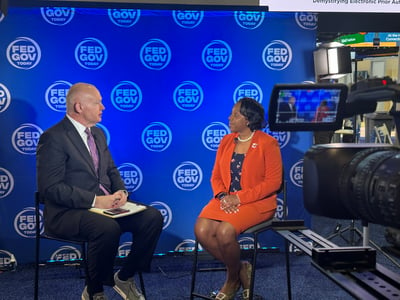 Naomi Escoffery, Deputy to the Deputy Assistant Director of Acquisition and Sustainment at the Defense Health Agency, discusses the digital transformation efforts to address clinician burnout and improve patient care within the military health system. By leveraging technology, DHA aims to alleviate operational challenges and enhance access to care. The initiative reflects a broader shift towards adopting innovative solutions to ensure the wellbeing of frontline healthcare providers and patients alike.
Naomi Escoffery, Deputy to the Deputy Assistant Director of Acquisition and Sustainment at the Defense Health Agency, discusses the digital transformation efforts to address clinician burnout and improve patient care within the military health system. By leveraging technology, DHA aims to alleviate operational challenges and enhance access to care. The initiative reflects a broader shift towards adopting innovative solutions to ensure the wellbeing of frontline healthcare providers and patients alike.
Key Takeaways:
- Digital transformation focuses on alleviating clinician burnout and improving access to care.
- Technology is seen as a key enabler in addressing healthcare challenges within the military health system.
- The initiative represents a commitment to enhancing the operational efficiency and quality of care for military personnel and their families.
Navigating the Cyber Threat Landscape in Healthcare: Insights from CyberMaxx's CISO
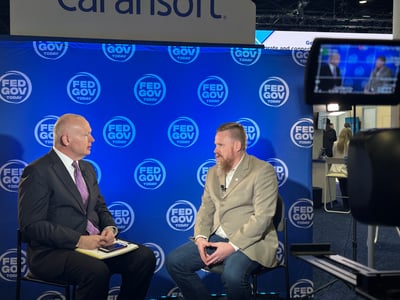 Aaron Shaha, CISO of CyberMaxx, delves into the escalating cyber threat landscape targeting the healthcare sector. Highlighting the criticality of cybersecurity amidst increasing attacks, Shaha discusses the challenges healthcare organizations face, including ransomware and data breaches. The conversation underscores the importance of robust cybersecurity measures to protect patient data and ensure the continuity of healthcare services in the face of growing cyber threats.
Aaron Shaha, CISO of CyberMaxx, delves into the escalating cyber threat landscape targeting the healthcare sector. Highlighting the criticality of cybersecurity amidst increasing attacks, Shaha discusses the challenges healthcare organizations face, including ransomware and data breaches. The conversation underscores the importance of robust cybersecurity measures to protect patient data and ensure the continuity of healthcare services in the face of growing cyber threats.
Key Takeaways:
- The velocity and impact of cyber attacks in healthcare are increasing, highlighting the need for robust defenses.
- Cybersecurity is a critical concern for healthcare organizations, with ransomware posing significant threats.
- The conversation calls for enhanced cybersecurity practices to safeguard patient data and healthcare services.
Strengthening Healthcare Cybersecurity: NIST's Strategic Approach to Safer Patient Care
Cherilyn Pascoe, Director of the National Cybersecurity Center of Excellence at NIST, emphasizes the integral role of cybersecurity in ensuring patient safety within the healthcare sector. By developing standards, tools, and frameworks, NIST aims to empower healthcare organizations to mitigate cyber risks effectively. Pascoe's insights highlight the critical connection between cybersecurity and patient safety, advocating for a more secure and resilient healthcare ecosystem.
Key Takeaways:
-
- Cybersecurity is pivotal to patient safety, necessitating robust standards and practices in healthcare.
- NIST's frameworks and tools are designed to help healthcare organizations address and mitigate cybersecurity risks.
- The conversation underscores the need for a unified approach to cybersecurity, aligning technology advancements with patient care priorities.
Fortanix Spearheads Zero Trust in Healthcare with Confidential Computing
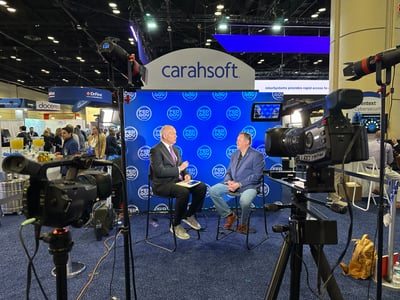 Patrick Conte, VP GM Americas at Fortanix, introduces confidential computing as a game-changer in healthcare cybersecurity, aligning with the principles of Zero Trust architecture. Conte emphasizes the importance of protecting data in use, a critical aspect often overlooked in traditional security models. By securing data across its lifecycle — at rest, in transit, and in use — Fortanix aims to safeguard healthcare data against increasingly sophisticated cyber threats, ensuring the privacy and security of patient information.
Patrick Conte, VP GM Americas at Fortanix, introduces confidential computing as a game-changer in healthcare cybersecurity, aligning with the principles of Zero Trust architecture. Conte emphasizes the importance of protecting data in use, a critical aspect often overlooked in traditional security models. By securing data across its lifecycle — at rest, in transit, and in use — Fortanix aims to safeguard healthcare data against increasingly sophisticated cyber threats, ensuring the privacy and security of patient information.
Key Takeaways:
- Confidential computing emerges as a key component of Zero Trust security, protecting data in use and addressing a gap in traditional cybersecurity defenses.
- Fortanix's approach to healthcare cybersecurity underscores the critical need to safeguard patient data across all stages of its lifecycle.
- The adoption of confidential computing technologies is essential for healthcare organizations striving to enhance their cybersecurity posture in the face of evolving threats.

-1.png?width=980&height=90&name=FGT%20728%20x%2090%20px%20(980%20x%2090%20px)-1.png)
Please fill out the requested information below